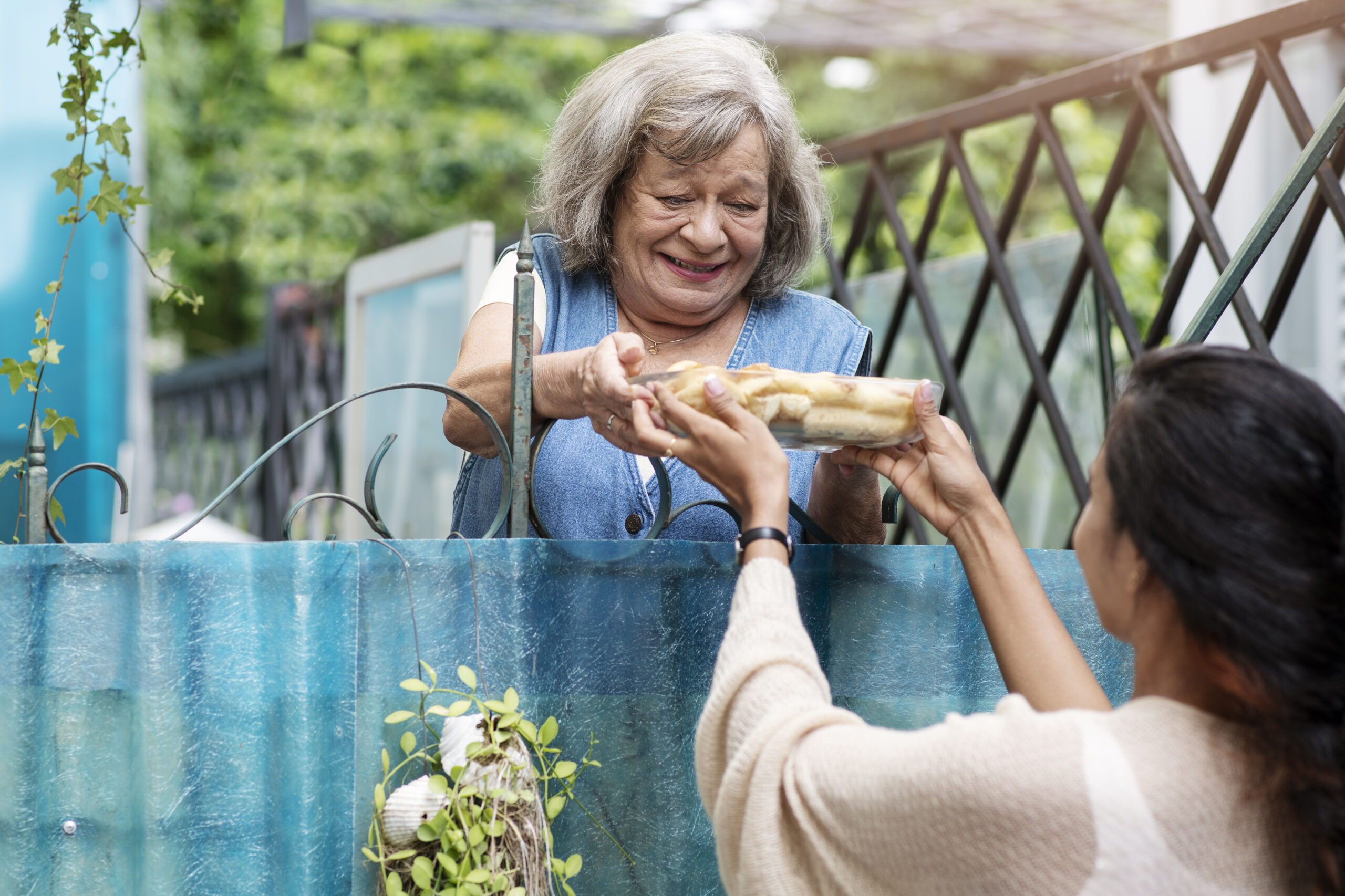Neighbours Helping Neighbours
“To contribute to the well-being of our cities during times of crisis, it is crucial to initiate support within our own neighbourhoods, whether that involves a single street or a specific building. Become an integral part of your community by taking on the role of a block or building organizer. Start making a difference today by printing our provided form and implementing positive change in your local community!”
– Able Neighbours




We Are Our Brother’s Keeper
In times of crisis, whether natural disasters, economic downturns, or pandemics, the significance of neighbours helping each other cannot be overstated. The concept of neighbourly assistance embodies a sense of community, resilience, and humanity that transcends individualism and fosters collective strength. From providing emotional support to sharing resources, the act of neighbours aiding one another serves as a cornerstone of societal cohesion and survival.
Assisting our neighbours creates a safety net during turbulent times. In the aftermath of calamities such as earthquakes or hurricanes, immediate access to professional aid may be limited. Here, neighbours stepping in to assist can mean the difference between life and death. Whether it’s offering shelter to those displaced, providing food and water, or assisting with medical emergencies, the collective efforts of neighbours amplify the capacity to respond effectively to crises.
Neighbourly help fosters a sense of belonging and solidarity within communities. During times of hardship, individuals may feel isolated or overwhelmed by the magnitude of challenges they face. However, knowing that there are neighbours willing to lend a helping hand instills a sense of reassurance and unity. This interconnectedness strengthens social bonds, promoting a shared identity and a mutual sense of responsibility for each other’s well-being.
When communities come together to overcome challenges, they harness their collective wisdom, skills, and resources. This collaborative effort not only enhances the ability to cope with immediate crises but also builds capacity for long-term recovery and preparedness. Through sharing knowledge, experiences, and lessons learned, neighbours empower each other to navigate future uncertainties more effectively.
Lending a helping hand to our neighbours cultivates empathy and compassion, essential qualities for a thriving society. In times of crisis, individuals may find themselves in vulnerable situations they never anticipated. By extending support to their neighbours, people not only alleviate suffering but also affirm the inherent dignity and worth of every individual. This culture of care and reciprocity fosters a more compassionate community where people look out for each other, regardless of differences or background.
Beyond practical assistance, neighbourly solidarity also has profound psychological benefits. The knowledge that one is not alone in facing challenges can alleviate feelings of fear, anxiety, and despair. Simply knowing that there are neighbours who care can provide a source of emotional comfort and strength. This emotional support is invaluable in maintaining mental well-being and promoting resilience amidst adversity.
In times of crisis, social order may be disrupted, and trust in institutions may waver. However, the bonds forged through neighbourly solidarity serve as a foundation of stability and resilience. By fostering a culture of mutual aid and cooperation, communities build a robust social fabric capable of withstanding even the most severe trials.
The importance of neighbours helping each other in the midst of crisis cannot be overstated. From providing practical assistance to offering emotional support, neighbourly solidarity embodies the essence of community resilience and compassion. By coming together to overcome challenges, neighbours not only ensure their collective survival but also cultivate a stronger, more cohesive society founded on empathy, solidarity, and mutual support.
Canadians Deserve Better Leadership
Demand psychological assessments for all public office candidates by signing this petition.
Ensuring Competent Leadership
The responsibilities of public office are immense, requiring individuals to make decisions that can impact millions of lives. By signing the petition for Psychological Assessment for Public Office Candidates, you are advocating for the selection of leaders who are not only knowledgeable but also psychologically fit to handle the stresses and pressures that come with governing. Psychologically sound leaders are more likely to make rational, well-considered decisions, thereby fostering a stable and prosperous nation.
Protecting Public Trust and Integrity
Public office is a position of trust, and Canadians deserve to have confidence in their leaders’ ability to act in the best interest of the country. A psychological assessment can help ensure that candidates possess the necessary emotional stability, integrity, and ethical judgment to fulfill their duties responsibly. This proactive measure can help prevent scandals and abuses of power, which erode public trust and weaken the very foundations of democracy.
Building a Resilient Government
Canada faces numerous challenges, from economic fluctuations to global political tensions. Leaders who are psychologically fit are better equipped to navigate these challenges with resilience and adaptability. They can inspire confidence, make sound decisions under pressure, and lead with empathy and foresight. Signing this petition is a step toward ensuring that Canada’s government is led by individuals who are mentally prepared to guide the nation through both good times and bad.
Promoting Mental Health Awareness
By advocating for psychological assessments for public office candidates, we also promote broader mental health awareness in society. It sends a powerful message that mental fitness is as important as physical health, particularly in roles of significant responsibility. This can help destigmatize mental health issues and encourage more people to seek help when needed, ultimately contributing to a healthier, more understanding society.

Safeguarding National Security
Leaders with narcissistic personality disorder pose a unique risk in public office due to their heightened sense of self-importance and lack of empathy. These traits can manifest in impulsive decision-making, which may compromise national security. Their tendency toward paranoia can lead to erratic behavior and a reluctance to trust advisors, leaving them vulnerable to manipulation. Psychological assessments are essential in identifying these traits, ensuring that those in power are not only competent but also mentally stable, especially in critical situations that demand sound judgment and reliability.
Ego and vanity in leadership can significantly impact governance and public perception. When leaders prioritize their self-image over the needs of their constituents, it can lead to decisions driven more by personal ambition than by sound policy. This focus on appearances can create a culture of superficiality, undermining trust and collaboration within political institutions. By recognizing the dangers of inflated ego, we can advocate for leaders who demonstrate humility and a genuine commitment to service, ultimately fostering a more stable and effective governance.
Leaders in public office often have access to sensitive information and are responsible for national security decisions. A psychological assessment can identify traits that might indicate a risk to national security, such as impulsivity, paranoia, or susceptibility to manipulation. Ensuring that candidates are mentally and emotionally stable is crucial for maintaining the safety and security of the country, especially in times of crisis or conflict.

Help build the volunteer base on your block!
In the face of adversity or the simple joys of community, volunteering serves as a potent force that intricately binds individuals into a resilient tapestry of support and connection. Whether maneuvering through the aftermath of a disaster or nurturing camaraderie in local gatherings, the essence of volunteerism emerges as a steadfast beacon of hope and unity. Contemplate the enriching experience of becoming a part of this collective effort within your own community.
Self-Sufficiency
Self-sufficiency in emergencies is crucial for individuals and communities alike. It involves being prepared to handle unexpected situations without external assistance for an extended period. This readiness includes having sufficient food, water, and medical supplies stored, as well as possessing the skills to address basic medical needs and ensure personal safety. Self-sufficiency also encompasses the ability to communicate effectively, both within the community and with emergency services if necessary. By fostering self-sufficiency, individuals not only enhance their own resilience but also contribute to the overall preparedness and cohesion of their communities during challenging times.









